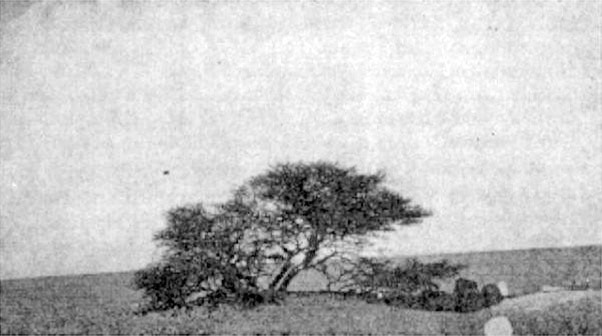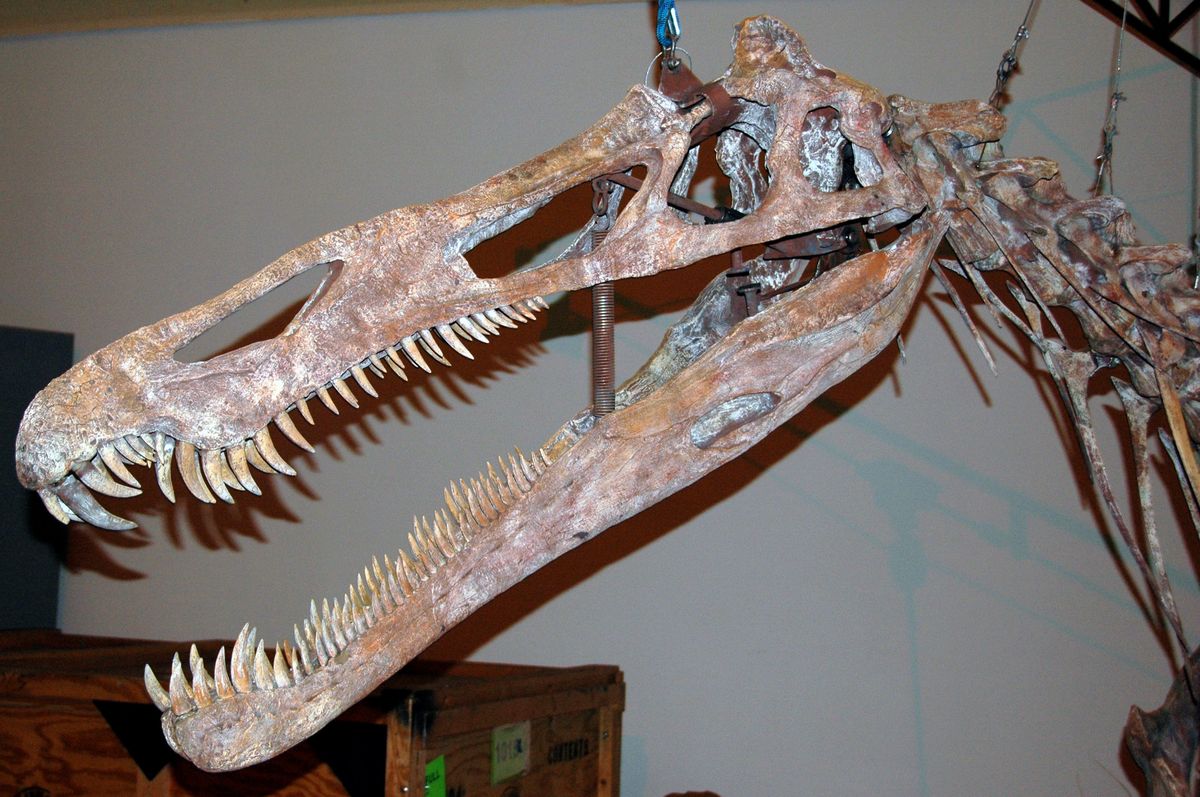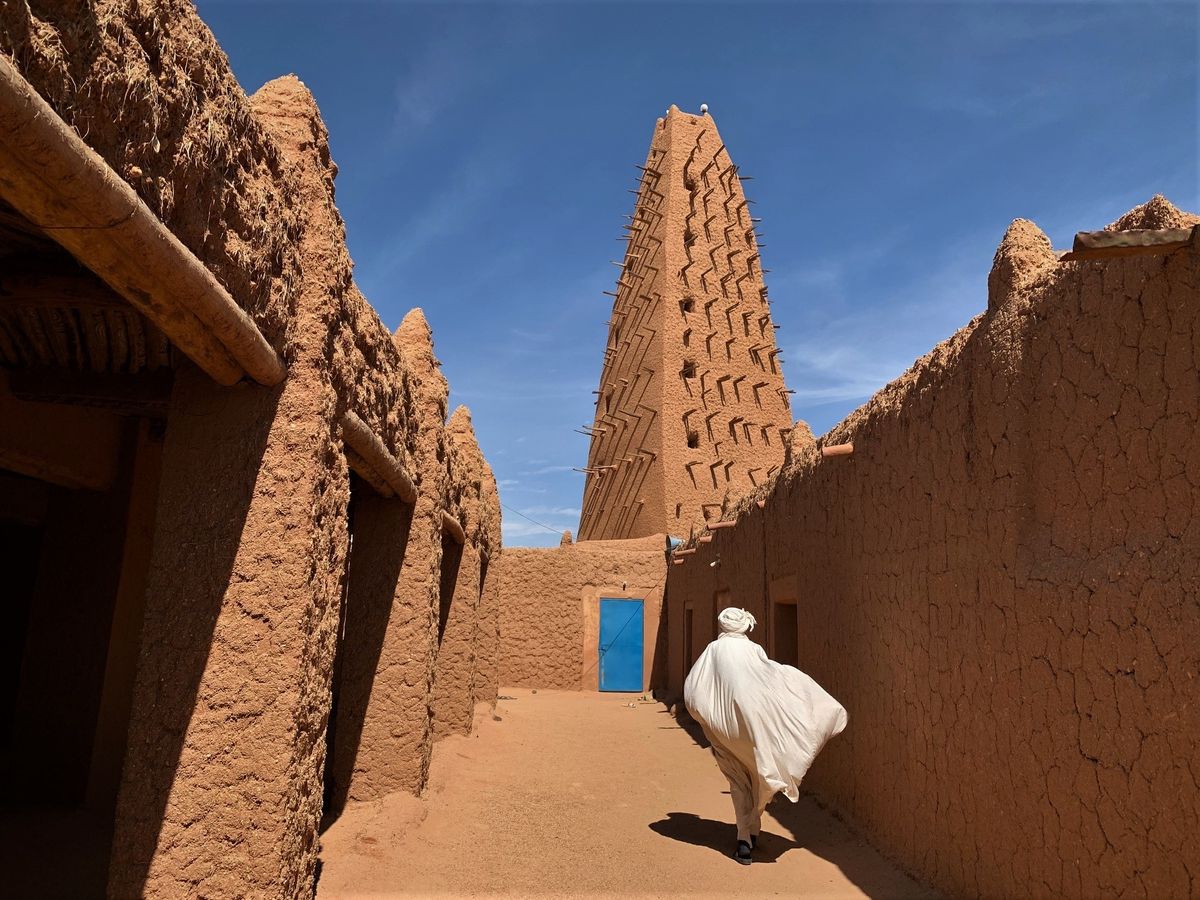Wondermondo 🢖 World 🢖 Wonders of Africa 🢖 Wonders of Niger
Territory
Wonders of Niger
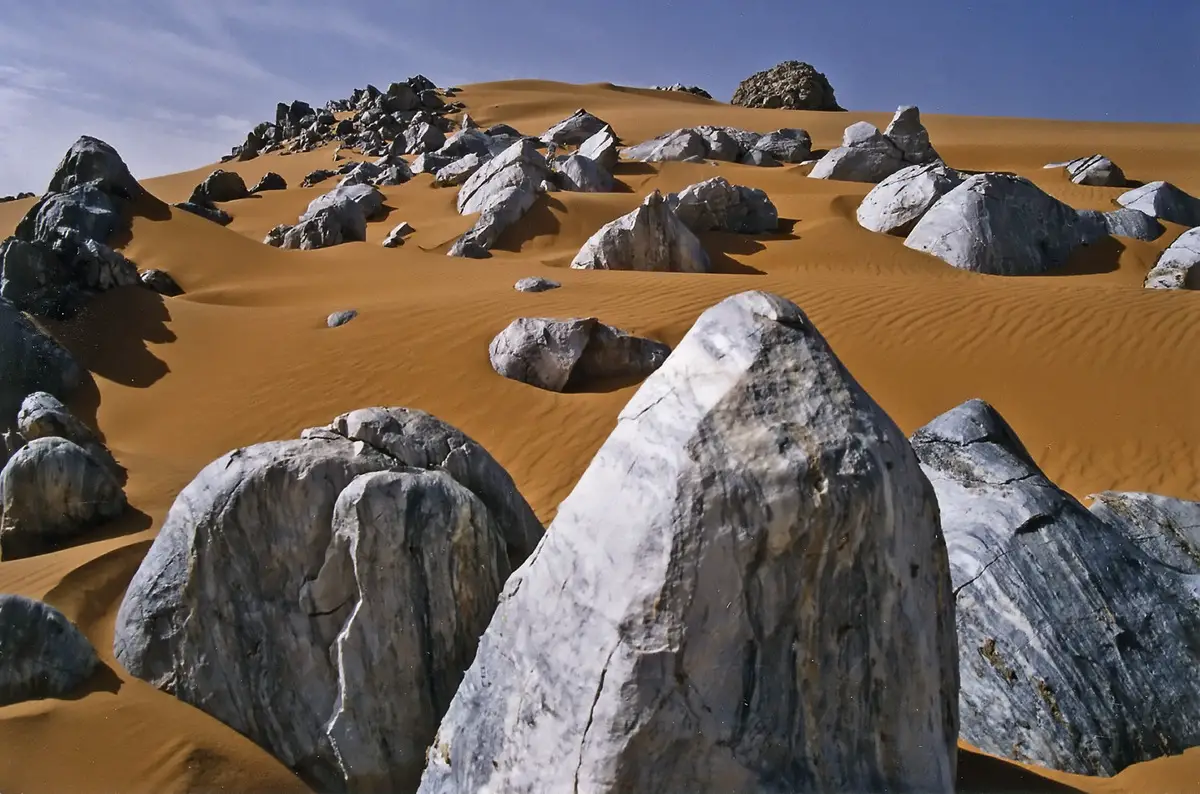
 Highlights
Highlights
For the most part, Niger is covered with desert. While some parts of the country have a monotonous landscape, there are surprising landmarks. The most amazing wonders of Niger are:
- Historical desert cities and towns. There are several old cities, towns, and villages in the country with well-preserved traditional architecture. Some are abandoned (Djado and Djaba) and now are exotic ruins in the middle of the desert. Others are alive (Agadez, Fachi, Zinder) and to an outsider may look like living in open-air museums.
- Adobe buildings. World’s tallest adobe structure – Agadez Mosque with its 27 m tall minaret – is in Niger. There are many other interesting buildings of adobe in the country.
Map with the described wonders
If you see this after your page is loaded completely, leafletJS files are missing.
 Top 19 wonders of Niger
Top 19 wonders of Niger
Geological wonders
Orida Arch
Agadez
Free-standing natural arch – a loop of sandstone, rising from the desert sands.
Timia waterfall
Agadez
Seasonal waterfall in guelta (seasonal stream) in the cliffs of Timia oasis.
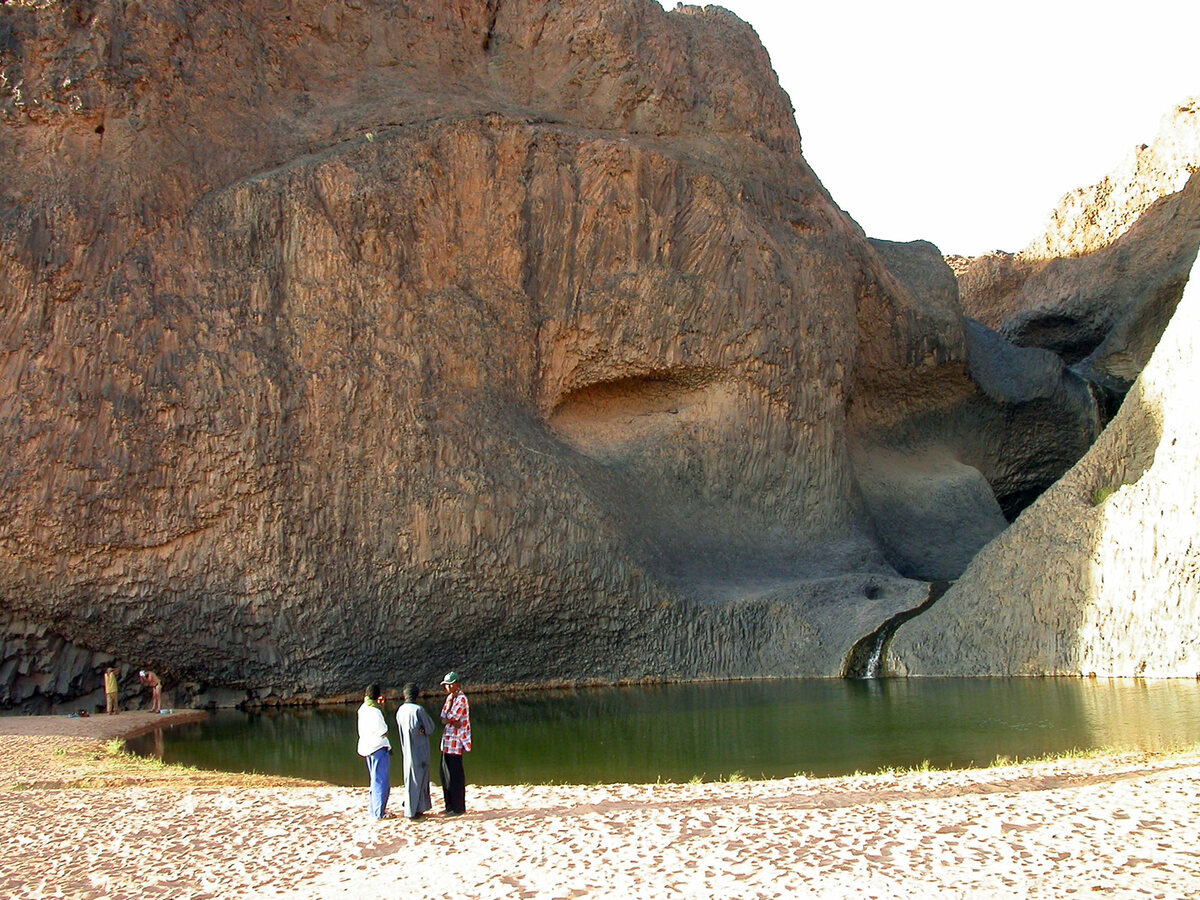
Biological wonders
Tree of Ténéré (sculpture)
Agadez
Metal sculpture on the site where was a lonely tree, reportedly – the loneliest tree in the world. This Acacia was standing 400 km from the nearest tree until it was knocked down by a car in 1973.
Gadoufaoua
Agadez
Fossil graveyard in Tenere desert that contains bones of extinct animals. An amazing find is the fossils of Sarcosuchus imperator, the most terrible crocodile in the world that lived some 112 million years ago.
Archaeological wonders
Dabous giraffe carvings
Agadez
World’s largest single petroglyph. Unique life-sized rock carvings of two giraffes that were created some 8 – 10 thousand years ago. The quality and detail of the carvings are exceptional. The largest giraffe is 5.4 m tall. The site contains hundreds of other petroglyphs. Niger is very rich in prehistoric cliff art and there are countless sites with petroglyphs, including very interesting and somewhat mysterious round-headed people in Tageuit.
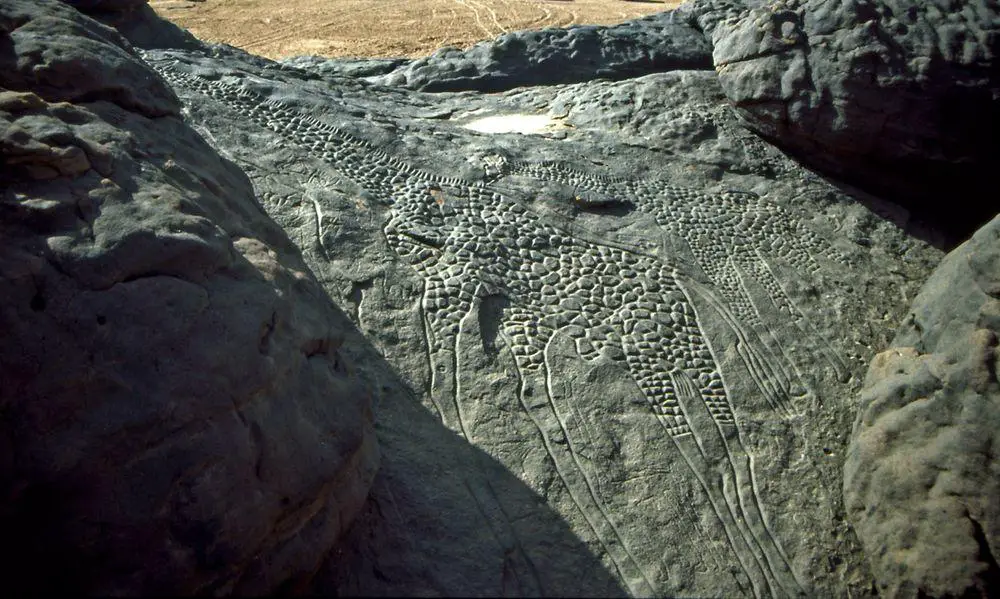
Ukhuse Oke footprints
Edo
Giant prints of human feet on the granite surface.
Bura site
Tillabéri
Prehistoric (first millennium AD) necropolis with coffins that are adorned with interesting terra cotta statues. The site contains burial mounds, shrines, and ancient dwellings. This site has given a name to local archaeological culture – Bura culture.
Gobero site
Agadez
The oldest known graveyard in the Sahara was used already sometimes around 8,000 BC. Here have been found remnants of extinct animals, human remains, and many interesting artifacts. The site was inhabited for some 5 thousand years.
Architecture wonders
Agadez Mosque
Agadez
Large clay building, originally constructed in 1515 and restored in 1844. Mosque has a 27 m tall minaret – the tallest adobe structure in the world.
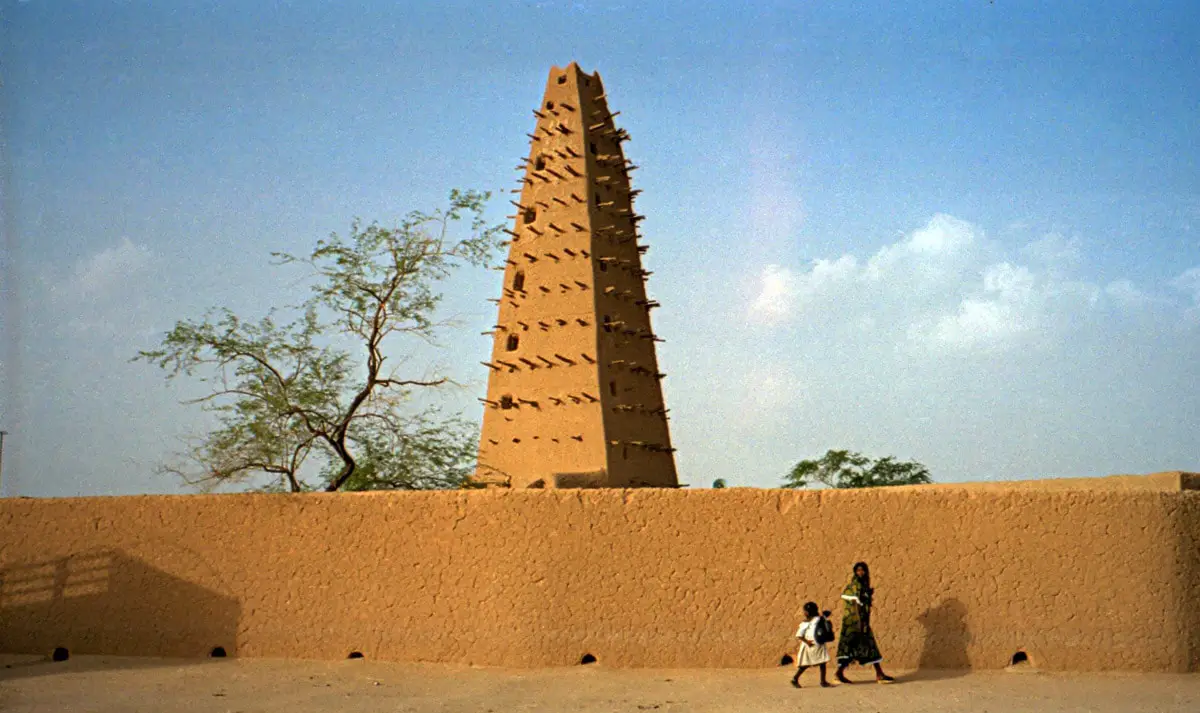
Zinder Palace
Zinder
Palace of the local sultan, a large building in the traditional local style, built from adobe.
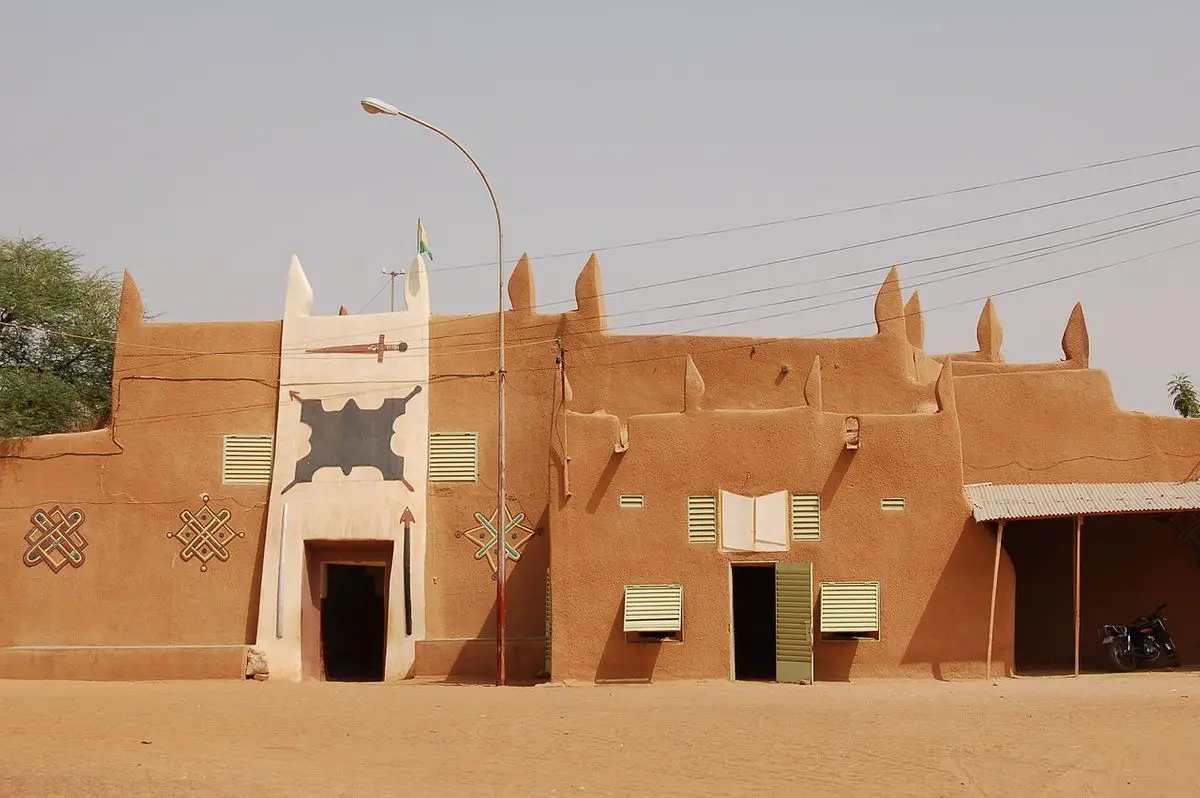
Agadez
Agadez
Tuareg city, founded before the 14th century AD. Historical quarters of this desert city are built from adobe and soil, several buildings have outstanding architecture – such as the mosque with the tallest adobe structure in the world.
Zinder historical centers
Zinder
A historical desert city that evolved in the 18th century. Two districts in the city – Birni and Zengou – contain many historical buildings. Birni (Birini) contains Zinder Great Mosque and Zinder Sultan’s Palace, but Zengou (an old Hausa settlement) has many examples of vernacular architecture. City has numerous mudbrick buildings.
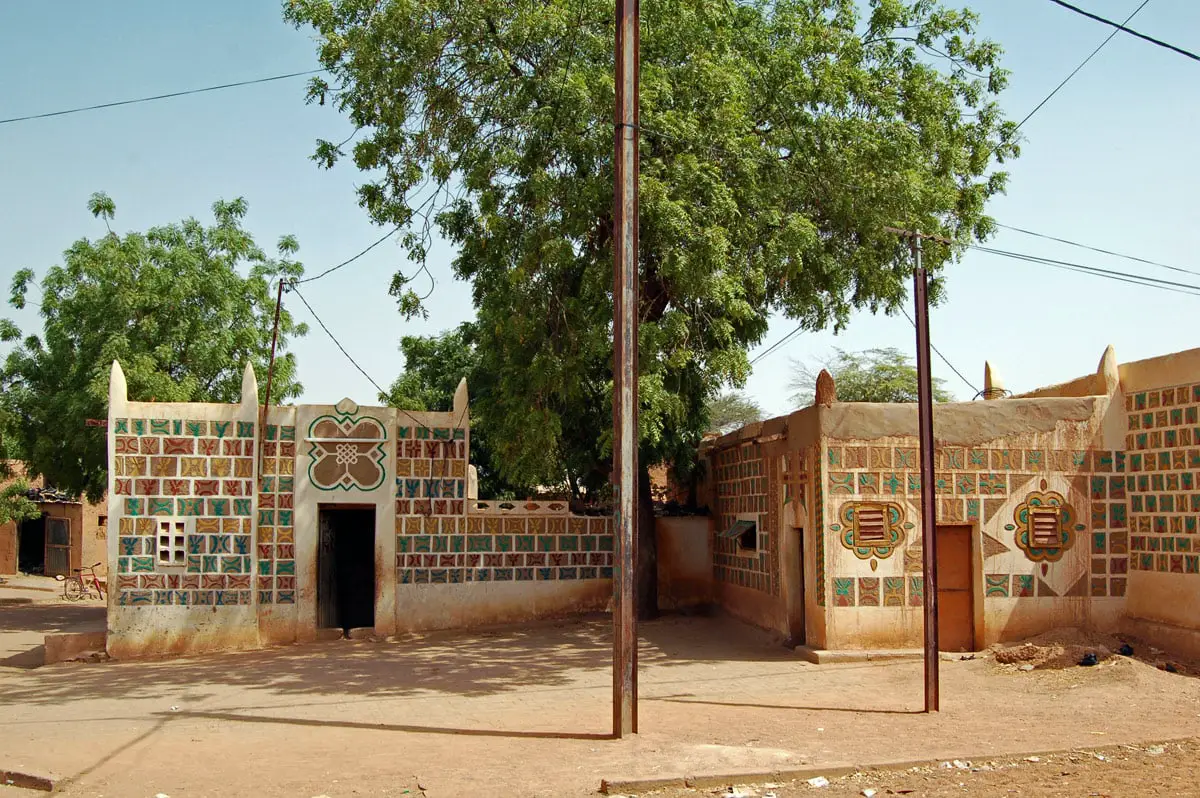
Djado ruins and Djaba ruins
Agadez
Ruins of an amazing, fortified hilltop town in the Djado Plateau.
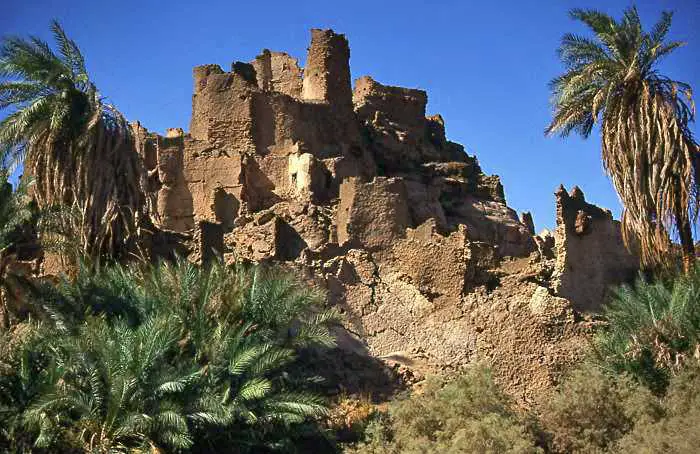
Madarounfa Lake
Maradi
Around this lake are 99 graves of Muslim saints. Site of legends about unusual events, e.g. gatherings of light on Thursday evenings.
Yamma Mosque (Yaama Mosque)
Tahoua
An unusual building, constructed in 1962 and later in traditional style, from adobe. The building has an elaborate structure of a central dome and four minarets. Local architect Elhadj Mamoudou dit Falké has built several similar mosques in this area.
Fachi fortified village
Agadez
A fortified citadel of Fachi village has tall walls and inside it are located granaries to provide food in case of siege. The village was fortified to repel the raids of Tuaregs and others.
Assodé ruins
Agadez
Ruins of a historical Tuareg capital in Aïr mountains, founded around the 11th century AD, declined in the 18th century AD and was abandoned in 1917. Ruins of a 30 m long mosque.
Tunguma Stone
Dosso
Traditional stone of judgment that can be approached only by certain, authorized people. According to local traditions, it moves towards the one who asks, if the answer is positive and moves away, if negative. This site has many legends, including legends about the nearby burial of the legendary first queen of Saraounia. This area is the last stronghold of the Hausa animist religion.
Agadez Palace
Agadez
Massive building from adobe, the palace of the local sultan.
 Recommended books
Recommended books
Niger: The Bradt Travel Guide
This first English-language guide to the Saharan country of Niger spans the densely populated regions of the south–a colorful melting pot of cultures–and the hostile desert landscape of the north–featuring some of the most stunning sand dunes in Africa. Transport options for travelers are a particular feature of the guide–including long-distance connections to neighboring countries, river trips on the River Niger, and camel trekking in the Massif de Aïr and Ténéré desert regions, home to the nomadic Tuareg people.
Lost Cities of AfricaNiger tourism: Sahara tour, in Niger republic
Overview of Niger republic: Niger has been inhabited by humans since at least 10000 BC, and has been part of many major West African empires throughout its history. Though today, Niger is situated within the Sahara Desert, its early terrain featured fertile grasslands and a variety of wildlife, and became the arid desert it is today beginning around 5200 BC.

